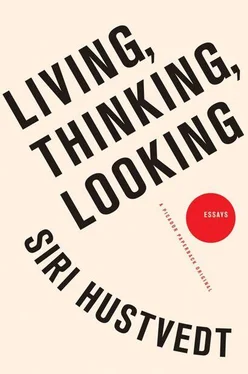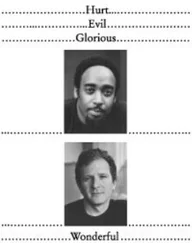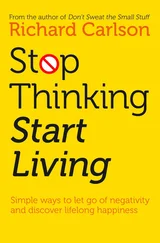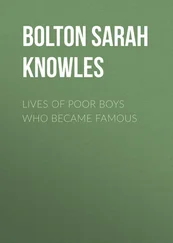Although the details of human hopes are surely beyond the imagination of other creatures, the evidence now clearly indicates that certain intrinsic aspirations of all mammalian minds, those of mice as well as men, are driven by the same ancient neurochemistries. These chemistries lead our companion creatures to set out energetically to investigate and explore their worlds, to seek available resources and make sense of the contingencies in their environments. These same systems give us the impulse to become actively engaged with the world and to extract meaning from our various circumstances. 2
Curiosity, that need to go out into the world, appears to be hardwired in all mammals. As Panksepp articulates it: it’s “a goad without a goal.” 3The “extraction of meaning” from those investigations, however, requires higher cortical areas of the brain unique to human beings. My dear departed dog Jack, when unleashed in the Minnesota countryside, would move eagerly from stump to thistle to cow pie, nostrils quivering, inhaling each natural marvel, and then, once he had mastered the lay of the land, he would burst into a run and race back and forth across the territory like a demented conquering hero. Through his superlative nose, he remembered and recognized the place, but I don’t think that when he was back home in Brooklyn he carried about with him a mental image of the wide flat land where he could romp freely or that he actively longed to return to it. Nor do I think he lay on his bed and imagined an ideal playground of myriad odors. And yet, he missed his human beings when we were gone. He grieved, in fact. Attachment and separation anxiety are primitive evolutionary mechanisms shared by all mammals. Once, when my sister Ingrid cared for Jack in our absence, she was sitting in a room of the house and, feeling a chill, went to the closet and put on a sweater of mine. When she returned, the poor dog was seized with a fit of joy, jumping up on her, turning circles in the air, and licking whatever part of her he could reach. Jack’s nose was spot-on; what he lacked was a human sense of time and context, which might have prevented him from believing in my sudden materialization out of nowhere.
There is a beautiful passage in Martin Buber’s book Between Man and Man, in which he describes stroking a beloved horse on his grandparents’ estate when he was eleven years old. He tells of the immense pleasure it gave him, his tactile experience of the animal’s vitality beneath its skin, and his happiness when the horse greeted him by lifting its head.
But once — I do not know what came over the child, at any rate it was childlike enough — it struck me about the stroking, what fun it gave me, and suddenly I became conscious of my hand. The game went on as before, but something had changed, it was no longer the same thing. And the next day, after giving him a rich feed, when I stroked my friend’s head he did not raise his head. A few years later, when I thought back to the incident, I no longer supposed that the animal had noticed my defection. But at the time I considered myself judged. 4
Buber’s story is meant to illustrate the withdrawal from a life of dialogue with the Other into a life of monologue or “reflexion.” For Buber, this self-reflective or mirroring quality disrupts true knowledge of the Other because he then exists as “only part of myself.” It’s notable that Buber shifts to the third person in the early part of the passage and then resumes in the first, because his experience is of a sudden, intrusive self-consciousness that alters the character of his desire. He has become another to himself, a third person he sees in his mind’s eye petting the horse and enjoying it, rather than an active “I” with a “you.” This self-theater of the third person is, I think, uniquely human and is forever invading our desires and fantasies. Celebrity culture demonstrates the extreme possibilities of this position because it runs on the idea of a person seen from the outside as spectacle, and the possibility that lesser mortals, with some luck, can rise to the ranks of the continually photographed and filmed. With the Internet and sites like Facebook, the intense longing to live life in the third person seems to have found its perfect realization. But all of us, whether we are Internet voyeurs of our own dramas or not, are infected by Buber’s “reflexion,” his description of narcissism, in which the self is trapped in an airless hall of mirrors.
Buber’s condemnation of the monologue position is profound, and yet self-consciousness itself is born in “mirroring” and the acquisition of symbols through which we are able to represent ourselves as an “I,” a “he,” or a “she.” It is this distance from the self that makes narrative movement and autobiographical memory possible. Without it, we couldn’t tell ourselves the story of ourselves. Living solely in reflection, however, creates a terrible machinery of insatiable desire, the endless pursuit of the thing that will fill the emptiness and feed a starved self-image. Emma Bovary dreams of Paris: “She knew all the latest fashions, where to find the best tailors, the days for going to the Bois or the Opera. She studied descriptions of furniture in Eugene Sue, and sought in Balzac and George Sand a vicarious gratification of her own desires.” 5
It is no secret that, once gained, the objects of desire often lose their sweetness. The real Paris cannot live up to the dream city. The high-heeled pumps displayed in a shop window that glow with the promise of beauty, urbanity, and wealth are just shoes once they find their way into the closet. After a big wedding, which in all its pomp and circumstance announces marriage as a state of ultimate arrival, there is life with a real human being, who is inevitably myopic, weak, and idiosyncratic. The revolutionary eats and sleeps the revolution, the grand cleansing moment when a new order will triumph, and then, once it has happened, he finds himself wandering among corpses and ruins. Only human beings destroy themselves by ideas. Emma Bovary comes to despair: “And once again the deep hopelessness of her plight came back to her. Her lungs heaved as though they would burst. Then in a transport of heroism which made her almost gay, she ran down the hill and across the cow-plank, hurried along the path, up the lane, through the market-place and arrived in front of the chemist’s shop.” 6It is the phrase “a transport of heroism” that is most poignant to me, the absurd but all too human desire to inflate the story of oneself, to see it reflected back as heroic, beautiful, or martyred.
Desire is the engine of life, the yearning that goads us forward with stops along the way, but it has no destination, no final stop, except death. The wondrous fullness after a meal or sex or a great book or conversation is inevitably short-lived. By nature, we want and we wish, and we assign content to that emptiness as we narrate our inner lives. For better and for worse, we bring meaning to it, one inevitably shaped by the language and culture in which we live. Meaning itself may be the ultimate human seduction. Dogs don’t need it, but for us to go on, it is essential, and this is true despite the fact that most of what happens to us is beneath our awareness. The signifying, speech-making, willful, consciously perceiving circuits of our brains are minute compared to the vast unconscious processes that lie beneath.
Almost twenty years ago, I gave birth to my daughter. Actually, “I” did nothing. My water broke. Labor happened. After thirteen hours of it, I pushed. I liked this time of pushing. It was active, not passive, and I finally expelled from between my legs a bloody, wet, awe-inspiring stranger. My husband held her, and I must have, too, but I don’t remember her in my arms until later. What I do recall is that as soon as I knew the baby was healthy, I lapsed into a state of unprecedented satisfaction. A paradisaical torpor seemed to flood my body, and I went limp and still. I was wheeled away to a dim room, and after some minutes, my obstetrician appeared, looked down at me, and said, “I’m just checking on you. How are you?” It was an effort to speak, not because I had any pain or even a feeling of exhaustion, but because speech seemed unnecessary. I did manage to breathe out the words that described my condition: “I’m fine, fine. I’ve never felt like this. I have no desire, no desire of any kind.” I remember that she grinned and patted my arm, but after she left, I lay there for some time, luxuriating in the sated quiet of my body, accompanied only by the awed repetition of the same words: I have no desire, none, no desire of any kind. I am sure that I was under the sway of the hormone oxytocin, released in quantities I had never experienced before, and which had turned me into a happy lump of flesh. Birth was a wholly animal experience; its brutal corporeal paroxysms left reflection behind. The executive, thinking, narrative “I” lost itself entirely in the ultimate creative act: one body being born of another. After the birth, it returned as a stunned commentator, similar to a voice-over in a movie that noted the novelty of my situation to an audience of one: me. Of course, the stupefaction didn’t last. It couldn’t last. I had to take care of my child, had to hold her, feed her, look at her, want her with my whole being. There is nothing more ordinary than this desire, and yet to be gripped by it feels miraculous.
Читать дальше












